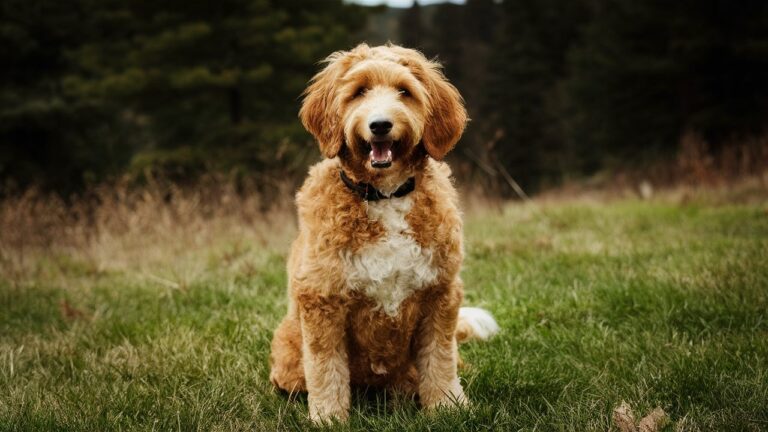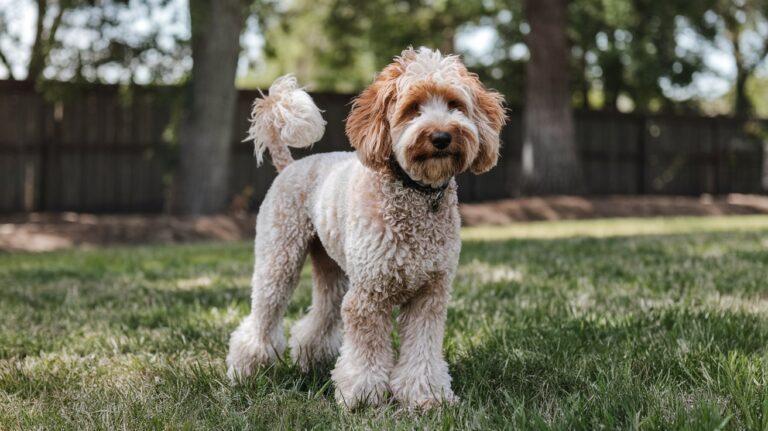Doberman Pinscher: 100% Loyal and Fearless Guardian
The Doberman Pinscher, often simply called a Doberman, is a breed synonymous with loyalty, intelligence, and an unwavering sense of duty. With its sleek, powerful physique and sharp alertness, the Doberman has earned a reputation as one of the most formidable working dogs. However, beneath the muscular exterior and the occasional “guard dog” stereotype lies a loyal companion that can also be a loving family member.
In this article, we will explore the Doberman Pinscher’s traits, history, training needs, and why they can make such excellent pets for the right owner. We will also include some personal anecdotes to help bring this powerful breed to life.
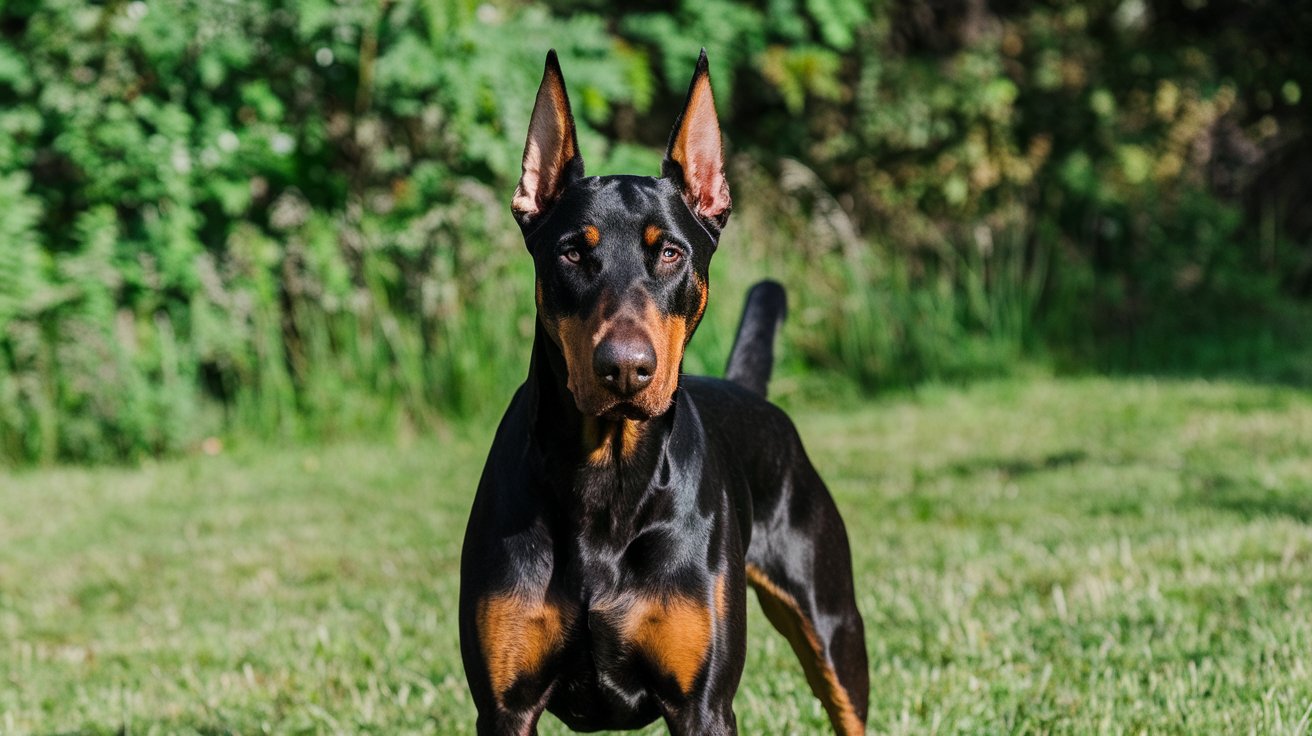
1. The History of the Doberman Pinscher
The Doberman Pinscher breed was developed in the late 19th century by a German tax collector named Karl Friedrich Louis Dobermann. Seeking a companion that could protect him during his rounds, Dobermann began selectively breeding dogs that possessed intelligence, loyalty, and physical strength. By combining various breeds, such as the Rottweiler, German Pinscher, and Weimaraner, he created the Doberman we know today. What makes the Doberman’s history so fascinating is that it was born out of necessity. In a time when tax collectors were unpopular and often faced danger, Louis Dobermann needed a dog that was not only strong but also protective, loyal, and agile. Today, that combination of qualities still defines the breed.
Personal Anecdote:
I remember visiting a friend’s family farm as a child, and they had a Doberman named Rex. At first, I was nervous because of Rex’s imposing appearance and the reputation Dobermans often have as aggressive dogs. But as soon as my friend introduced me, Rex warmed up to me almost immediately. He was not just a protector of their home; he was a loyal companion who stayed by my side during my entire visit, watching over me with a calm demeanor. It was my first experience with a Doberman, and I quickly learned how misunderstood they could be.
2. Temperament: More Than Just a Guard Dog
Dobermans are often portrayed as fierce, intimidating dogs, especially in media and popular culture. However, that is only one side of their personality. The truth is that Dobermans are incredibly loyal, affectionate, and deeply connected to their families. They have a natural protective instinct, making them excellent watchdogs, but they also crave human companionship.
If you’re looking for a breed that will love spending time with you, whether on long walks or simply lounging around the house, the Doberman might be the perfect match. Dobermans are often known as “Velcro dogs” because they tend to stick close to their owners. This closeness fosters a strong bond between the Doberman and its family. They thrive in an environment where they can be part of everyday activities and are happiest when they feel needed.
Personal Anecdote:
A close family member of mine owned a Doberman named Luna. Whenever I visited, Luna would greet me with enthusiasm, almost knocking me over in her excitement. But after a few minutes of high-energy greetings, she’d settle down beside me, resting her head on my lap, and simply stay there. Whether we were watching a movie or having a conversation, Luna always wanted to be nearby, quietly guarding us and enjoying our presence.
3. Training a Doberman Pinscher: Intelligence and Challenge
The Doberman Pinscher is renowned for its intelligence and eagerness to learn. They are quick to pick up new commands and excel in tasks such as obedience training, agility, and even advanced working roles like police and military service. However, this intelligence can be both a blessing and a challenge.
A Doberman that lacks proper training or stimulation can become bored, which may lead to behavioral issues such as destructiveness or excessive barking. Early training and socialization are critical to ensuring that they grow into well-mannered, balanced adults. The key to training a Doberman is consistency, positive reinforcement, and patience. They are sensitive to their owners’ emotions and respond best to calm, assertive leadership. It’s important to start training early to harness their natural abilities and prevent bad habits from forming.
Personal Anecdote:
My uncle once had a Doberman named Max. While Max was incredibly smart, his intelligence sometimes worked against him. If Max sensed that his owner wasn’t paying attention during training, he’d find clever ways to get out of tasks—like pretending not to understand a command. But with consistency and patience, my uncle was able to teach Max advanced tricks and obedience commands. Watching Max follow his owner’s gestures with such precision was a testament to how brilliant this breed can be when trained properly.
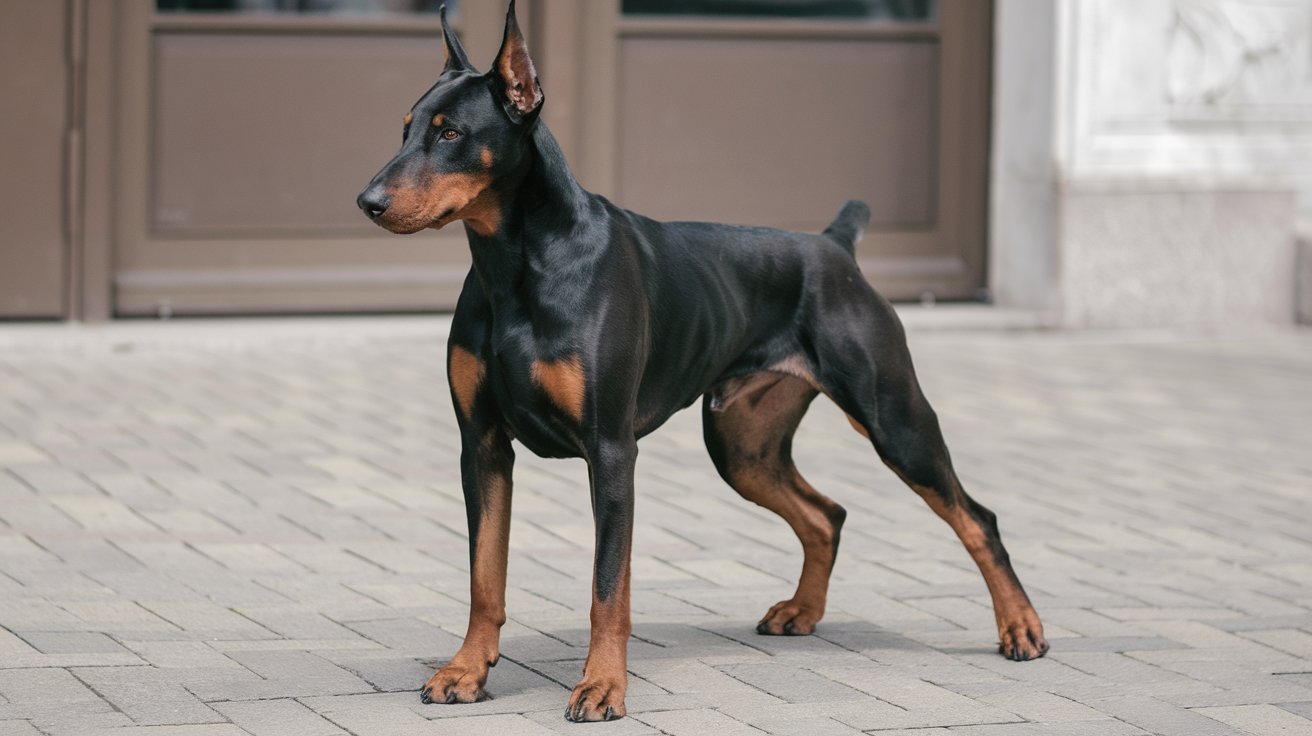
4. Exercise and Mental Stimulation: A Must for Dobermans
Dobermans are highly active dogs that need both physical and mental stimulation. These dogs were bred to work, and they retain that drive even in a family environment. Without adequate exercise, Dobermans can become bored and restless, which may result in unwanted behaviors. Daily exercise is crucial to keeping a Doberman happy and healthy. Long walks, runs, or playing fetch are great ways to burn off their energy. In addition to physical exercise, Dobermans also benefit from mental challenges like puzzle toys, obedience training, or agility courses. These activities not only engage their sharp minds but also help strengthen their bond with their owners.
Personal Anecdote:
I once helped a neighbor take care of their Doberman, Duke, for a few days. Duke was a ball of energy, always eager to play or go for a run. One day, I decided to take him to an agility park nearby. Watching Duke navigate the obstacles with ease was incredible. He jumped through hoops, ran through tunnels, and completed the course like a pro. By the end of the day, Duke was happily exhausted, and I learned firsthand how important it was to keep him both physically and mentally engaged.
5. Doberman Pinschers as Family Pets
When raised in a loving and structured environment, Dobermans can be wonderful family pets. They are known for their loyalty and protective instincts, making them excellent companions for families with children. With proper socialization, they get along well with other pets and can be surprisingly gentle. That said, Dobermans thrive best in homes with experienced dog owners who understand the breed’s needs. They are not the best choice for first-time dog owners, as they require a strong, confident leader who can provide them with the structure and attention they need.
Personal Anecdote:
A close friend of mine has a Doberman named Rocky, who grew up alongside her two children. At first, she was concerned about how Rocky would interact with the kids, but after proper training and socialization, Rocky became their gentle protector. He would follow the children everywhere and often sat near them when they played in the yard, always watching over them. Even though Rocky was a large, powerful dog, he was incredibly gentle and patient with the kids, demonstrating just how adaptable and loving Dobermans can be as family pets.
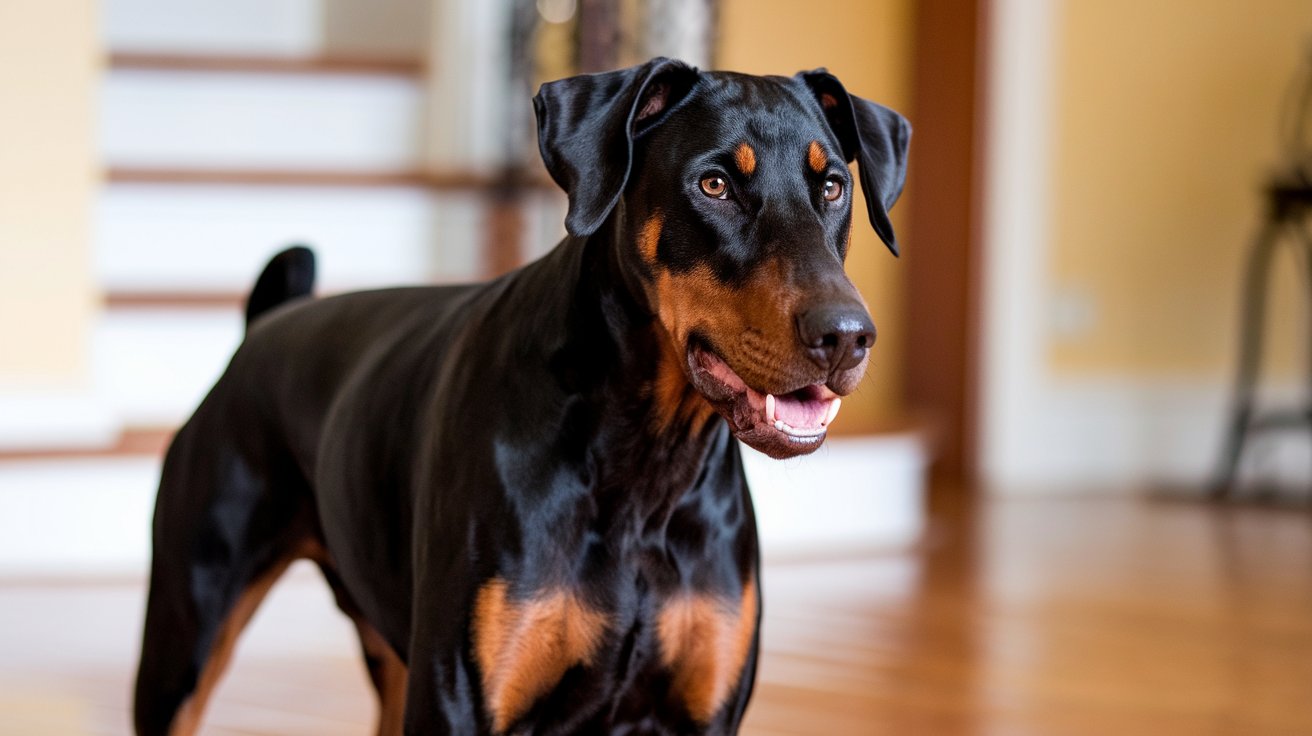
Conclusion
Doberman Pinschers are loyal, intelligent, and protective dogs that can make excellent companions for the right owner. Their energy and need for mental stimulation mean they are best suited to active households that can provide the attention they crave. If you’re looking for a dog that will not only protect you but also be a loving member of the family, the Doberman Pinscher might just be the perfect fit. However, they do require a strong, confident owner who can provide consistent training and exercise. With the right environment and care, a Doberman will offer unwavering loyalty and affection in return.
